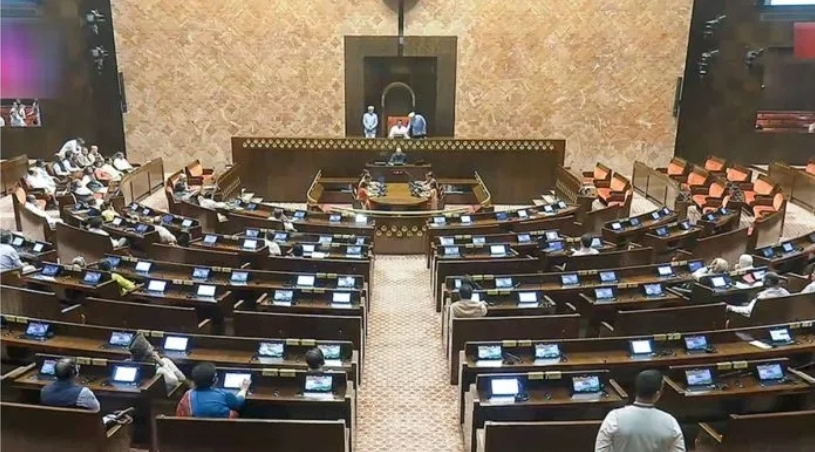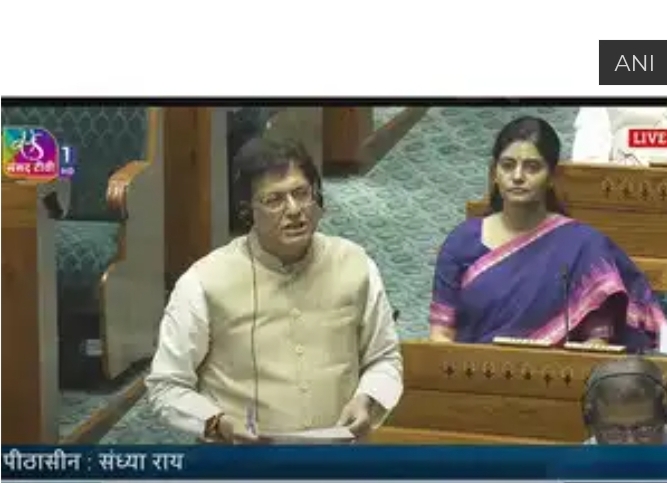Breaking Down Barriers: The Jan Vishwas Bill 2025 and India’s Bold Move Toward Business-Friendly Governance
Have you ever wondered what happens when fear meets business innovation? For decades, countless entrepreneurs across India have lived with the constant anxiety of facing criminal charges for minor paperwork delays or technical oversights. However, this scenario is rapidly changing with the introduction of the Jan Vishwas Bill 2025.
Understanding the Business Transformation
On August 18, 2025, Union Commerce Minister Piyush Goyal introduced what many consider a watershed moment in Indian regulatory reform. The Jan Vishwas (Amendment of Provisions) Bill 2025 isn’t just another piece of legislation; moreover, it represents India’s commitment to trust-based governance. Furthermore, this bill builds upon the remarkable success of its 2023 predecessor, which already decriminalized 183 provisions across 42 central acts.
Now, businesses are witnessing an unprecedented expansion of reform. Specifically, the 2025 version proposes amendments to 355 provisions spanning 16 central acts administered by 10 ministries and departments. Consequently, this comprehensive approach signals the government’s serious commitment to transforming India’s business landscape.
The Customer Experience Revolution
What does this mean for your business operations? First and foremost, the fear factor that has historically plagued entrepreneurial ventures is being systematically dismantled. Additionally, 288 provisions will be decriminalized to enhance ease of doing business, while 67 provisions focus on improving ease of living. Therefore, businesses can now operate with greater confidence and reduced anxiety about inadvertent compliance failures.
Consider this practical example: previously, first-time offenders faced harsh penalties for minor violations. However, under the new framework, 76 offenses under 10 different laws will result in advisories or warnings instead of immediate penalties. Subsequently, this approach encourages voluntary compliance rather than fear-driven adherence.
Moreover, the bill introduces automatic fine adjustments, increasing penalties by 10% every three years without requiring new legislation. Consequently, businesses gain predictability in their compliance costs while maintaining effective deterrence against violations.
The Analytical Deep Dive: Reform Mechanics and Economic Impact
From an analytical perspective, the Jan Vishwas Bill 2025 represents sophisticated regulatory engineering. Significantly, the government has moved from criminal prosecutions to administrative penalties for minor violations. Additionally, designated officers now possess authority to impose penalties through administrative processes, thereby reducing judicial burden.
The economic implications are substantial. Research indicates that over 42,000 compliances have been rationalized across different central ministries since 2014, resulting in significant cost reductions for businesses. Furthermore, India’s Ease of Doing Business ranking improved dramatically from 142nd in 2014 to 63rd in 2020. Consequently, these reforms have generated measurable improvements in India’s global competitiveness.
Specifically examining sector impacts, the Motor Vehicles Act amendments allow state-wide vehicle registration instead of jurisdiction-specific requirements. Similarly, the New Delhi Municipal Council Act introduces transparent, formula-based property tax assessment through the Unit Area Method. Therefore, these changes reduce compliance complexity while improving transparency.
Stakeholder Perspectives and Business Community Response
The business community’s response has been overwhelmingly positive. Importantly, industry leaders recognize that regulatory simplification creates substantial operational benefits. Additionally, startups and MSMEs particularly benefit from reduced compliance burdens, as they often lack resources for complex legal navigation.
However, the reform process emphasizes stakeholder consultation. Notably, Commerce Minister Goyal has specifically requested industry feedback to make Jan Vishwas 2.0 more effective. Consequently, this collaborative approach ensures reforms address real business challenges rather than theoretical concerns.
Legal experts highlight another crucial aspect: the shift from imprisonment to monetary penalties for minor offenses reduces legal risks while maintaining deterrence. Therefore, businesses can now focus resources on growth rather than defensive legal strategies.
Global Context and Competitive Positioning
Internationally, these reforms position India more favorably against global business standards. Significantly, the government’s “Minimum Government Maximum Governance” principle aligns with international best practices for regulatory efficiency. Additionally, the trust-based governance model reduces bureaucratic friction that historically deterred foreign investment.
The National Single Window System exemplifies this transformation, having facilitated over 75,000 business approvals from users across 150+ countries. Consequently, India’s digital-first approach to regulatory approvals attracts global attention and investment.
Furthermore, the planned Investment Friendliness Index will create competitive federalism among states, encouraging uniform improvements in business environments. Therefore, this systematic approach ensures reforms extend beyond central legislation to state-level implementation.
Implementation Timeline and Future Trajectory
The bill’s referral to a select committee demonstrates careful implementation planning. Specifically, the committee must submit its report by the first day of the next parliamentary session. Additionally, this review process ensures comprehensive stakeholder consultation before final enactment.
Looking ahead, Minister Goyal has announced plans to identify 1,000 minor offense provisions for decriminalization within 45 days. Moreover, this ambitious timeline reflects the government’s urgency in completing regulatory modernization. Subsequently, businesses can expect continued reform momentum throughout 2025 and beyond.
The government’s broader reform agenda includes establishing a high-level committee for comprehensive regulatory review of non-financial sectors. Consequently, the Jan Vishwas Bill represents just one component of a systematic transformation approach.

Strategic Implications for Business Leaders
For business leaders, these reforms create unprecedented opportunities. Primarily, reduced compliance anxiety enables greater risk-taking and innovation. Additionally, simplified procedures accelerate business establishment and operational scaling. Therefore, entrepreneurs can allocate resources toward growth rather than regulatory navigation.
The trust-based governance model fundamentally changes government-business relationships. Importantly, businesses no longer operate under presumption of guilt for minor infractions. Instead, the system encourages voluntary compliance through education and support rather than punishment. Consequently, this approach fosters collaborative rather than adversarial relationships.
Furthermore, automatic penalty adjustments provide cost predictability, enabling better financial planning. Additionally, graduated penalties for repeat offenders ensure fairness while maintaining enforcement effectiveness. Therefore, businesses benefit from both flexibility and clarity in regulatory expectations.
The Jan Vishwas Bill 2025 represents more than legislative reform; it embodies India’s evolution toward modern, trust-based governance that prioritizes business growth and citizen empowerment. Through systematic decriminalization, administrative streamlining, and stakeholder collaboration, the government is creating an environment where entrepreneurial success becomes the norm rather than the exception. As this transformative legislation advances through parliamentary review, businesses across India can anticipate a future defined by opportunity rather than obstruction, confidence rather than fear, and growth rather than mere compliance survival.

